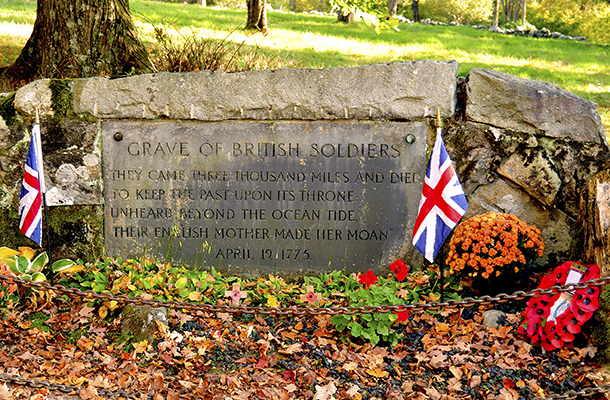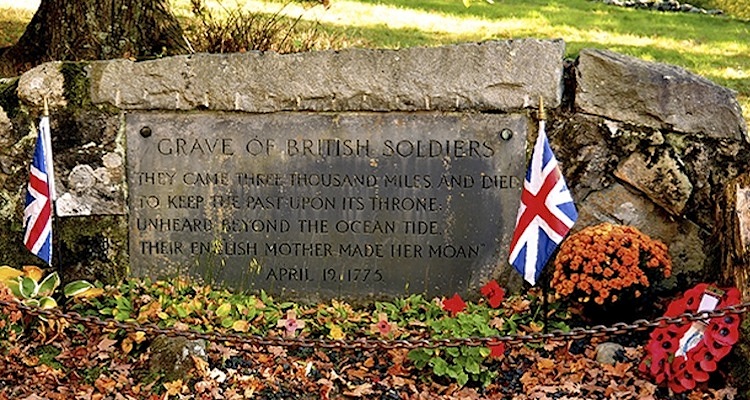
Q: After visiting some of the beautifully maintained British cemeteries in Europe and Asia, I was struck by the dedication of the British to honoring their dead left in foreign lands. What happened to the dead of their side in the American Revolutionary War? If they are here, where are they and who cares for them today?
Paul Anderson
Helena, Montana
A: At the time of the American Revolution, British Army regulations called for battlefield burial of their dead. So the remains of redcoats who died of wounds or disease in the war—25,000, by one reliable estimate—lie in many places. Recent research in Boston indicates that after the Battle of Bunker Hill on June 17, 1775, about 50 of the British dead were interred in an abandoned trench dug by American defenders. Presumably nearby, in scattered graves never marked, lie some 150 more redcoats.
While there is no designated cemetery for Revolutionary warriors—American or British—a few places are significant. At Mount Independence State Historic Site in Orwell, Vermont, researchers have found several burial sites that probably contain the remains of Americans, British, Germans, Canadians, and Native Americans killed in battle. According to local legend, Old Salem Burying Ground in the village of Salem, New York, may be the final resting place of about 100 American soldiers killed in the Battle of Saratoga. Another local tradition has hundreds of American soldiers buried in unmarked graves around Bethlehem, Pennsylvania, site of a Continental Army hospital. In 1892 the bodies of 10 soldiers who fell in the Revolution were removed to Arlington National Cemetery and buried in honored glory.
Thomas B. Allen, a former National Geographic writer and editor, is author of many books on American history, including Tories: Fighting for the King in America’s Civil War (2011).
Something about military history you’ve always wanted to know? Submit your question to MHQeditor@weiderhistorygroup.com, and we’ll have an expert answer it.


.jpg)



